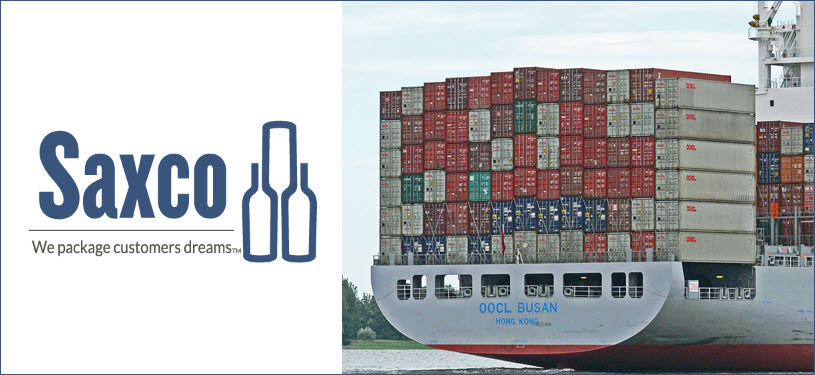
John Berry, Chief Executive Officer of Saxco, the leading North American value-added distributor of rigid packaging to the wine, spirits, craft beer and food markets, issued the following statement regarding the Department of Commerce (DOC)’s announcement that it has determined that Chinese foreign subsidies exist and are countervailable:
“Saxco is prepared and ready to support companies impacted by the Department of Commerce’s determination. A cornerstone to Saxco for over 80 years has been our ability to provide customers with flexibility and an assurance of supply. Saxco is the largest glass bottle distributor in the country and has many longstanding and significant relationships with domestic and international manufacturing partners. This gives us immediate access to capacity and supply, and in turn, positions us to help companies deal with any issues caused by today’s determination.
Saxco’s history and expertise in glass is a clear differentiator compared to the other distributors. Our diverse supply options and commitment to providing innovative customer solutions ensure Saxco has the infrastructure and capabilities to offer a stable and reliable supply chain to our customers.”
Effective immediately, U.S. Customs and Border Protection (CPB) will begin to collect subsidy duty cash deposits from importers of Chinese glass containers at the time of importation. The preliminary subsidy duty rates vary by company, but the largest suppler rates range from 22.60% to 23.25%, with certain Chinese manufacturers receiving rates as high as 315.73%. These new duty deposits are in addition to the existing tariffs (25%) on glass containers from China. A fact sheet regarding this decision can be found at the following DOC site here.
The new duty deposits will increase again in April 2020 if the DOC preliminary finds dumping (e.g., pricing below normal value) in a parallel antidumping duty (AD) investigation. In October 2020, if the investigations result in AD and/or countervailing duty (CVD) duty orders, duties will continue to be imposed for at least five years, with the possibility that the duties would continue for successive five-year periods.














